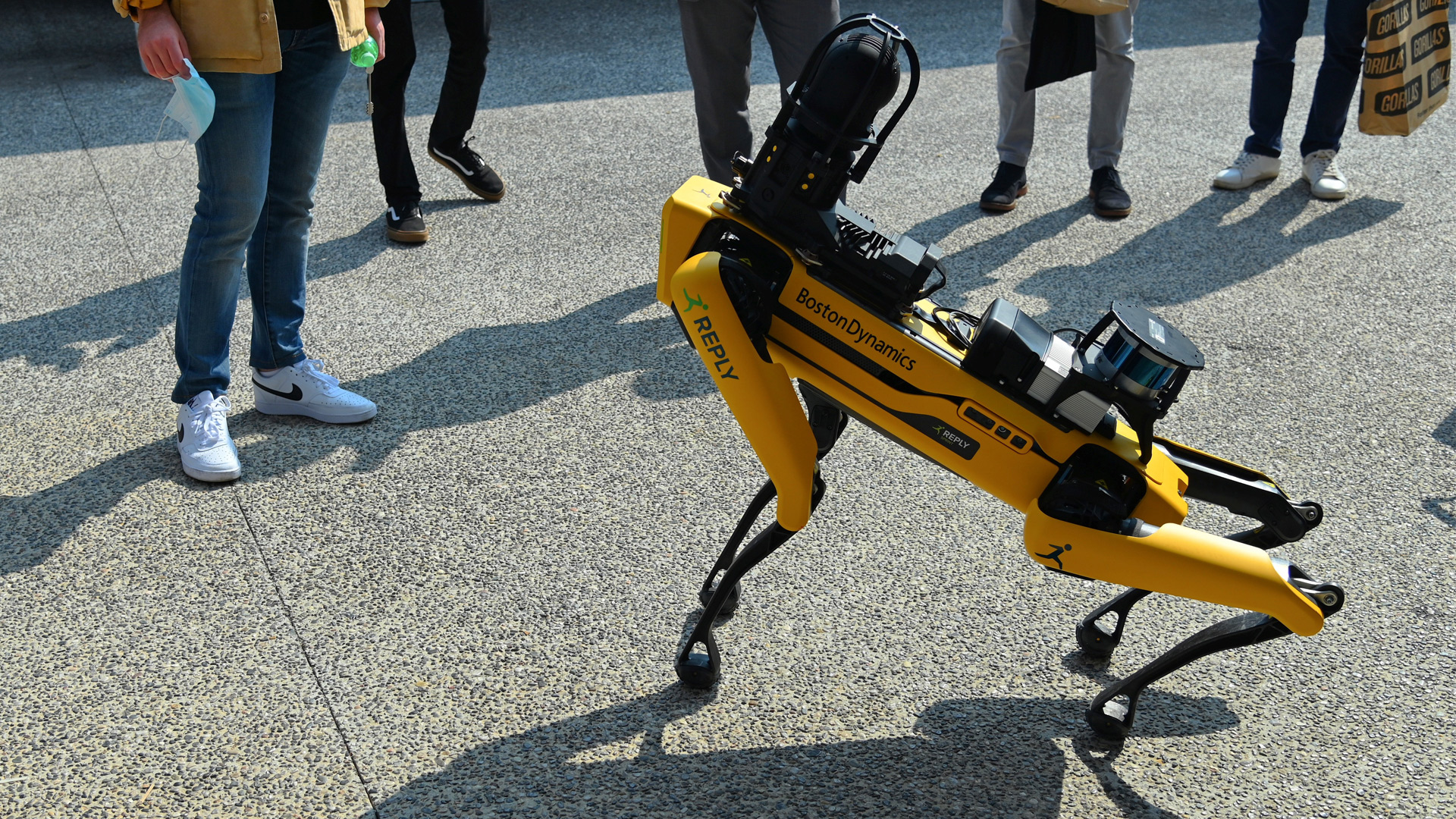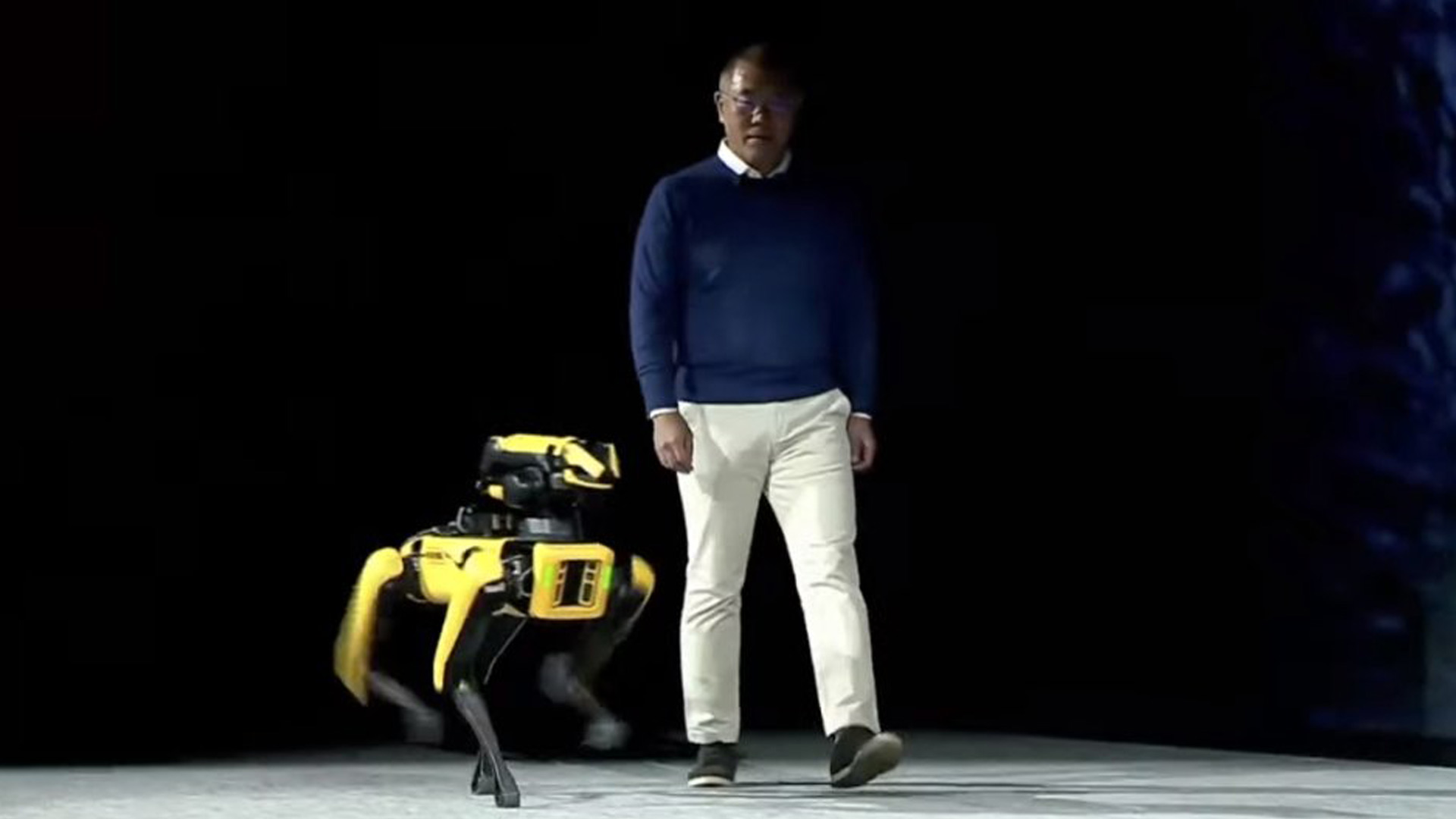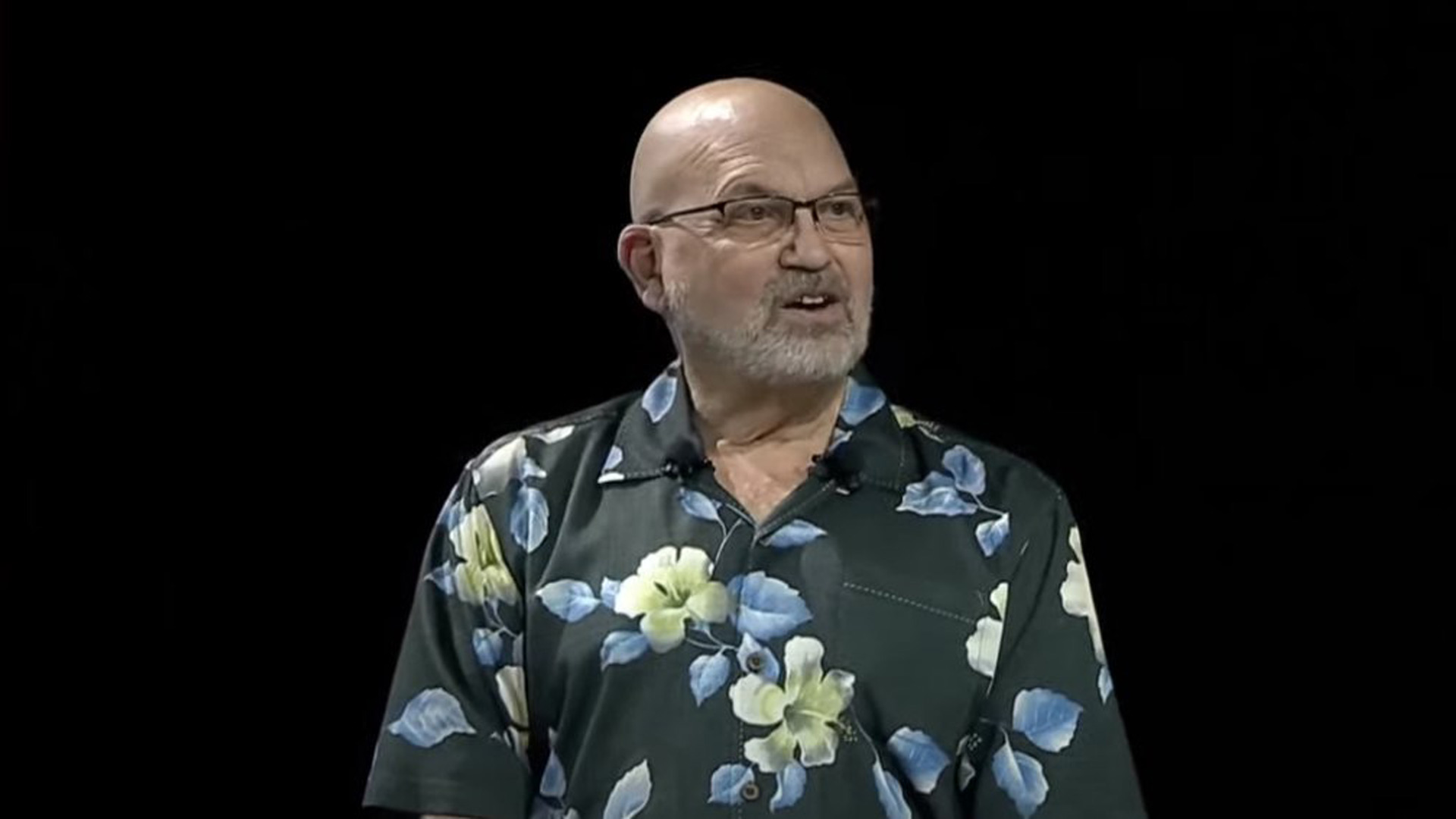Boston Dynamics once tried to help Sony with AIBO - and envisions a 'Spot Lite'
Marc Raibert opens up at CES 2022 about Hyundai and the challenges of making a "Spot Lite"

Sign up for breaking news, reviews, opinion, top tech deals, and more.
You are now subscribed
Your newsletter sign-up was successful
It's been just six months since Korean auto manufacturer Hyundai acquired buzzy robot developer Boston Dynamics, and the two are still getting to know each other and all the opportunities that lie ahead. This was evident at CES 2022: During the Hyundai keynote, Boston Dynamics Founder and Chairman (and likely chief robot nerd) Marc Raibert quickly corrected himself on the pronunciation of his new parent company's name.
A day after that keynote Raibert told a collection of Zoomed in tech journalists that Boston Dynamics is still building a relationship with Hyundai and identifying where they can fit in and how their technologies overlap.
At this moment, their comingled robotics work is minimal. Hyundai's MobED platform has nothing to do with Boston Robotics. It's also very much a research project. But figuring out how Boston Dynamics Artificial Intelligence (AI) technologies can add value to cars is very much in the roadmap.

There are clear areas of overlap, like how robots and cars - self-driving ones, in particular - can make use of vision systems. Still, Raibert's keenly aware of the divergence in need: "There are similarities and differences," he told us. In reliability, for instance. What a car traveling 60-to-70 mph on sometimes unstructured or unpredictable roadways needs is quite different from what a factory robot like the Stretch robot might require.
Even so, Raibert sees significant opportunities on the manufacturing side. "We're identifying factories making cars - legacy and futuristic ones - [for robots] to take on tasks that either aren’t being done or could be."
Spot Lite
There's no indication that Hyundai plans a radical shift in Boston Dynamics' core robot-development strategy, but I was curious how working with such a consumer-facing brand might impact future Boston Dynamics projects.
After all, the robots Boston Dynamics currently develops - the humanoid Atlas, the quadruped dog Spot, and the wheeled and stretchable Stretch - are in the conversation because, at least in the case of Spot and Atlas, they appeal to consumers. It's probably all that dancing.
Sign up for breaking news, reviews, opinion, top tech deals, and more.
I asked Raibert if Hyundai could push Boston Dynamics to develop more consumer-friendly versions of their robots and suggested a "Spot Lite."
“We would all love to have a consumer robot, something like Spot or Spot Lite that are low cost. But it’s not easy to get there.”
To illustrate the difficulty, Raibert explained, “We even worked for years with Sony on AIBO [the company’s nearly $3,000 robot dog] making ones that you’ve never seen that are more capable.”
Sony's two go-arounds with consumer-grade robot companion dogs have been marginally successful. The company introduced the first AIBO (which it then insisted was not a dog) back in 1999. It went through a few iterations before disappearing. A redesigned, and very puppy-like, AIBO arrived a few years ago at CES, but still sells for an oppressive $2,800.
It's hard to know if Boston Dynamics tried to help during the first interaction or this new one, but I would love to see all the failed models. My guess is they were amazing but would've jacked up the price to well over $20,000. Boston Dynamics headless Spot currently costs $75,000, and you still have to know how to program it to do something useful.
Raibert also reminded me of how many social robot companions have failed over the years. There's the issue of finding the right paradigm and getting costs under control.

There is cause for optimism, though. Raibert, who said he's been working on robots since before the days of the mini computer, finds that the smartphone industry is particularly helpful in driving down the cost of components including cameras and processors, things that can be used in future robots. "We're getting huge help," he said, adding that on the subject of affordable companion robots, "I think it'll happen."
What might happen sooner, though, is a wave of senior care bots. In answer to a question from an AARP reporter (my buddy Ed Baig), Raibert said he'd had the experience of caring for his 88-year-old aunt in the last days of her life and, "I do think there’s an opportunity. I think having robots that can help with those tasks is real." Raibert also believes that cost may be less of an issue because there are deeper pockets for elder-care bots than there would be for consumer robots.
It's certainly something Raibert wants. While not revealing his age, Raibert said he's well into the range of the AARP audience. ‘I don’t want my kids to have to get me dressed in the morning. I want a robot to do that," he said
Boston Dynamics robots are already at work in harsh and difficult environments, as well as doing such standard factory work as patrolling the inventory aisles. So should nurses and home health aides fear for their jobs? Raibert doesn't buy it. He said robotics often create jobs in the need for programmers, designers, and repair people. "I think robotics is like every other technology: cars, computers, airplanes, lasers. They cause change, and all that change isn’t bad.”
Speaking of change, what if -- and now hear me out, Boston Dynamics -- we cut the number of Atlas dance videos in 2022 down by, say, two, and use those cycles to ramp up Spot Lite production? Just a thought.

A 38-year industry veteran and award-winning journalist, Lance has covered technology since PCs were the size of suitcases and “on line” meant “waiting.” He’s a former Lifewire Editor-in-Chief, Mashable Editor-in-Chief, and, before that, Editor in Chief of PCMag.com and Senior Vice President of Content for Ziff Davis, Inc. He also wrote a popular, weekly tech column for Medium called The Upgrade.
Lance Ulanoff makes frequent appearances on national, international, and local news programs including Live with Kelly and Mark, the Today Show, Good Morning America, CNBC, CNN, and the BBC.
